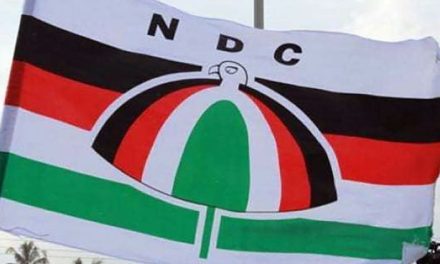
Tensions Rise in Parliament as Minority Occupies Majority Seats1 min read
Posted by time97.7fm | October 22, 2024 9:19 am | Big Stories, Politics | 0 |

The Minority Caucus in Ghana’s Parliament has claimed the seats usually held by the Majority, escalating tensions between the National Democratic Congress (NDC) and the ruling New Patriotic Party (NPP).
This bold move comes as Parliament reconvenes for a crucial session on October 22, 2024, and signals a significant power struggle.
The action follows a recent ruling by Speaker Alban Bagbin, which declared four parliamentary seats vacant, reducing the NPP’s strength and effectively giving the NDC a numerical advantage with 136 seats compared to the NPP’s 135. The vacant seats include those from both parties and one independent MP.
In response, the Majority quickly appealed the Speaker’s decision to the Supreme Court, which temporarily stayed the ruling, leaving the situation uncertain. This limbo has fueled a contentious battle for control of the Chamber, as the Minority asserts its perceived dominance.
Minority Chief Whip Governs Kwame Agbodza defended the action, stating it reflects the current composition of Parliament. As NDC MPs took their positions in the Majority’s territory, NPP members erupted in protest, accusing their opponents of undermining the ongoing legal process.
The Majority, led by Frank Annoh-Dompreh, condemned the Minority’s actions, vowing to resist any attempts to usurp their authority. Heightened security measures were put in place around Parliament, anticipating potential clashes as both sides prepare for a heated confrontation.
With Ghana approaching the 2024 general elections, the stakes are high, and the Ghana Center for Democratic Development (CDD-Ghana) has called for restraint and adherence to legal processes to prevent further political instability. As the battle over parliamentary seats continues, the outcome of the Supreme Court’s deliberations may either restore order or exacerbate the divide, leaving the future of Ghana’s political landscape in the balance.


















